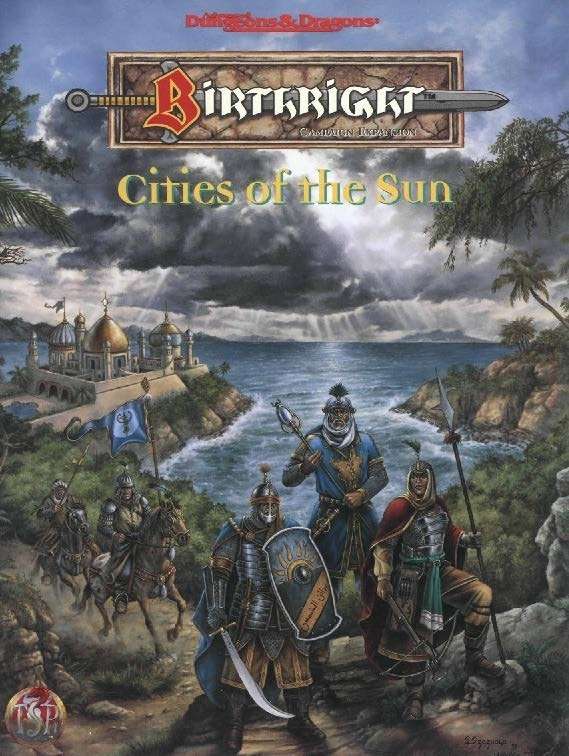
In addition to the Domains themselves, PCs can also control Holdings, which are smaller, but nonetheless important, components of the domain.

Rulers can foment unrest in enemy provinces, research new magics (if the regent is a Priest or Wizard,) appoint Lieutenants, or develop their provinces by building roads, bridges, fortifications, aqueducts, or making other civic improvements. The Domain's finances, trade status, spy network, and management of important personalities are all covered by the standard Domain Actions which can be taken by the regent. Many different aspects of rulership are represented here, not just troop movements. Players of ASL will not be satisfied by this battle system, but the level of detail provided is more appropriate for inclusion in a roleplaying game anyway. These cover the management of the Domain, and include a rather simple tactical battle system for resolving conflicts. The Domains which are ruled by Regent characters are also covered by an extensive set of rules. This is similar to the idea developed in _Highlander_, but it's less of an all-or-nothing thing-the victor can usually gain only a point or two unless certain very rare magical weapons are used to commit the deed. It's also possible to "steal" a scion's Bloodline strength, if one scion kills another in a specific manner. Also covered is the manner in which a Bloodline is inherited by one's children. Each of these derivations limits a Blooded character's access to certain powers. In addition, each Bloodline is derived from one of the seven Old Gods who perished at the Battle of Mount Deismaar. How many of them a character has access to is dependent on his Bloodline strength, which is measured in points. There are nearly 30 different Bloodline powers. However, the actual mechanics for this are very interesting and provide for a great deal of variation between Blooded characters. This idea may have been taken too literally-there are real, substantial game benefits to being Blooded, even aside from the fact that it makes a character potentially qualified to rule a domain. If you aren't Blooded, the best you can hope for is to be a trusted underling to one of these powerful characters. It is these Blooded individuals, called scions, who rule the various nations of Cerilia (and there are a lot of them,) called "Domains." Blooded persons also control various religious orders, guilds, and sources of magical power. The Old Gods didn't survive the battle, but their essences were instilled into their followers and persist today, inherited by their descendants. The campaign itself is set up around the idea of the "Divine Right of Kings." In Cerilia, some individuals are "Blooded," possessed of innate powers granted by ancestors who were present at a cataclysmic Battle of the Gods centuries ago. And that's too bad, because Birthright is, in my opinion, AD&D strongest campaign setting to date. WotC/TSR has now officially killed Birthright, since so little of their audience liked it or wanted to see new products. In fact, I thought highly enough of them to eventually procure the main Birthright boxed set (since, after all, I couldn't properly evaluate the support products without knowing anything about the nature of the setting.)

Much of that stuff met my expectations for TSR products (this was before the WotC buyout, bear in mind.) The Birthright items, a couple of the domain sourcebooks, did not. Nevertheless, I took the stuff, and, unaware of the dog's death that _Conjure_ would die, I dutifully proceeded to evaluate it.

I warned the magazine's publisher that my reviews were more than likely to be quite negative-he was well aware of my disdain for TSR. A few years back, I was handed a stack of material to review for the now-defunct _Conjure_ magazine (in heaven's name, let it stay defunct!) The magazine folded before most of my reviews could be published, but in that stack were a few items from TSR's then-new campaign world, Birthright. As I have said elsewhere (at great length,) I am not a fan of TSR or the AD&D game system.


 0 kommentar(er)
0 kommentar(er)
